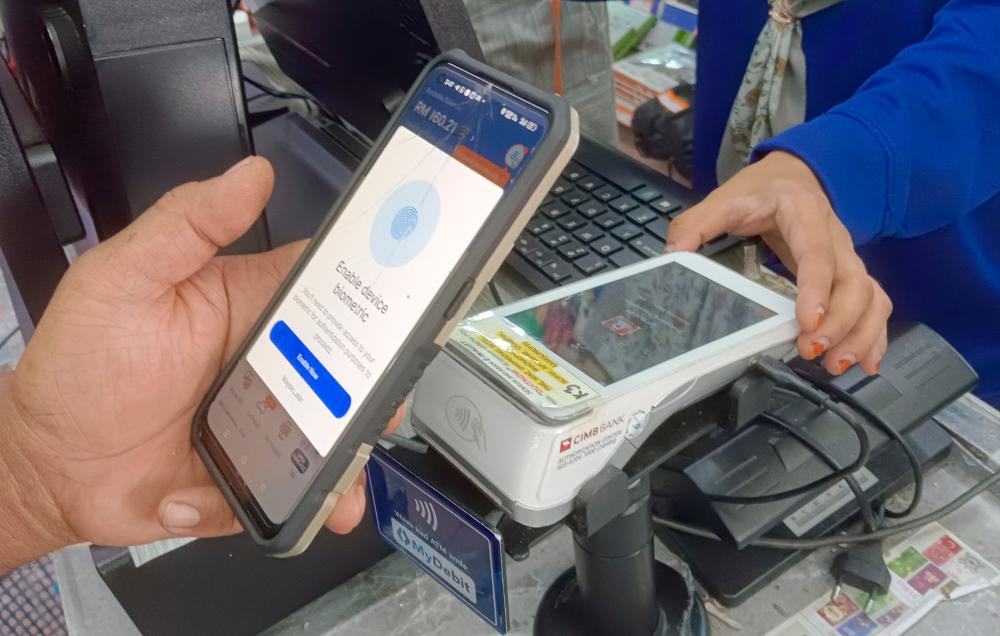PETALING JAYA: Bank Negara Malaysia is likely to reduce the printing of physical currency in the future as more Malaysians embrace e-wallet payments, said Putra Business School Assoc Prof of Economics Dr Ida Md Yasin.
Global financial technology platform Adyen reported on May 28 in its Adyen Index 2024 that Malaysians lead the world with 63% using e-wallets for transactions.
It said this is the highest adoption rate globally, and with the popularity of e-commerce, 73% of Malaysians use social media platforms about six times a month just to shop.
“The preference for fast and convenient payment methods among Malaysian shoppers is driving the demand for simplified in-store processes, including the use of kiosks and one-click checkouts,” the report stated.
Ida said as the public finds it more convenient to make payments using e-wallets, electronic spending will increase while physical currency usage declines.
She added that the boost in spending will drive the economy as businesses see higher sales and revenue through the widespread adoption of e-wallets.
“Despite the transition from paper to digital money, the fundamental nature of money remains unchanged as it still represents value, albeit in electronic form.
“The transition to e-wallets would also improve the economy by simplifying the process of using and spending money, which again will maintain the economic momentum.”
Ida said the widespread adoption of e-wallets would also indirectly stimulate the economy.
“E-wallets will boost retail sales in Malaysia, as their usage is positively correlated with increased consumer spending.”
However, while urban businesses are rapidly adapting to electronic payments, those in rural areas are lagging, Ida said.
“Gen Z are more inclined to embrace e-wallets as they are more technologically savvy and receptive to digital innovations.
“In contrast, older generations prefer using cash. This reflects their reluctance to change long-standing habits and concerns about the security of digital transactions.”
Ida said e-wallet payment options can significantly enhance customer loyalty through convenience and seamless shopping, especially with features such as loyalty rewards, cashback offers and discounts.
“When customers know that a particular store or seller accepts e-wallet payments, they are more likely to return there for future purchases.
“This will make the purchasing process easier, more efficient and create additional value for customers through rewards and promotions while increasing sales for the merchant through repeat visits.”
However, she said while the convenience of digital transactions is a major advantage, it also opens up potential vulnerabilities in terms of data fraud and the security of mobile devices.
“Two-factor authentication is crucial for security. It adds an extra layer by requiring a second level of verification, like a code sent to the user’s mobile device so that a fraudulent transaction cannot be completed without this additional step.
“Implementing advanced security features such as facial recognition, fingerprints or PINs will also ensure that the security of mobile payments can be greatly improved.”
“Perhaps within the next five years or even sooner, we can expect to witness significant advancements in electronic payments.
“The increasing adoption of e-wallets and technological innovations will likely ensure this happens,” she said.









